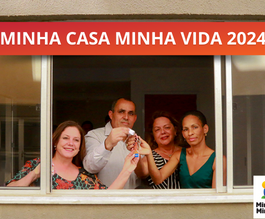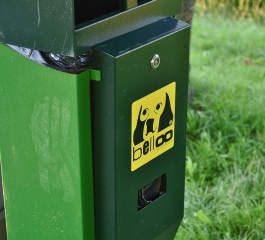What is sustainable development
Sustainable development is a growth model that seeks to meet the needs of the present without compromising the ability of future generations to meet their own needs.
It aims to balance economic progress, social justice and environmental preservation to ensure a viable future for the planet and humanity.
In other words, it is a path that aims at conscious and responsible development, taking into account the impacts of human activities on the environment and society.
To create a balance between present well-being and conservation of natural resources for future generations.
How does it work in practice?
In practice, sustainable development involves the implementation of policies, practices and strategies that promote the responsible use of natural resources, for example.
Reducing pollution and environmental impacts, social inclusion, improving the quality of life of the population and encouraging technological innovation.
Some of the ways sustainable development works in practice include:
Use of Renewable Energy: Invest in clean, renewable energy sources such as solar, wind, and hydropower to reduce dependence on fossil fuels and lower greenhouse gas emissions.< /p>
Energy Efficiency: Implement measures that promote the more efficient use of energy, such as the use of equipment and technologies with low energy consumption and the encouragement of the adoption of sustainable practices in industries and homes.< /p>
Biodiversity Conservation: Preserving natural areas, creating reserves and parks, and adopting measures to protect and restore biodiversity to ensure the survival of species and ecosystems.
Sustainable Management of Natural Resources: Implement practices that ensure the responsible exploitation of natural resources, such as forests, water and soil, to prevent their depletion and ensure their availability for future generations.
Environmental Education and Awareness: Promote population awareness of the importance of sustainability and encourage the adoption of environmentally responsible practices in their daily lives.
Corporate Social Responsibility: Companies adopt policies and practices that go beyond profit, considering the social and environmental impacts of their activities and contributing to the well-being of the communities in which they operate.
Sustainable Governance: Political actions and decisions that take sustainability into account at various government levels, including the formulation of environmental laws and regulations.
Main objectives of sustainable development
The Sustainable Development Goals (SDGs) are a series of goals established by the United Nations to be achieved by the year 2030. There are 17 interconnected goals that cover several dimensions, namely:
- Poverty Eradication;
- Annihilation of Hunger and Conservative Agriculture;
- Population health and well-being;
- Quality Training to the world;
- Gender Equality;
- Water and Sanitation clean of impurities;
- Clean and Affordable Energy;
- Honest Work and World Economic Growth;
- Industry, Innovation and Infrastructure;
- Reduction of any and all social injustice;
- Sustainable Cities and Communities;
- Legal and balanced consumption and production;
- Action against Global Climate Change worldwide;
- Life on Water;
- Terrestrial Life;
- Peace, Equity and Skilled Institutions;
- Partnerships and Means of Implementation;
In this way, sustainable development aims to promote the integration of economic, social and environmental development, ensuring a sustainable and fair future for all.
In this regard, countries are encouraged to adopt these goals to address global challenges and achieve sustainable progress in all its dimensions.
Importance of sustainable development
Sustainable development is of utmost importance to ensure a viable future for humanity and the planet.
It promotes the preservation of natural resources, conserves the environment and improves people’s quality of life.
In this way, by adopting sustainable practices, we reduce greenhouse gas emissions and mitigate climate change.
In addition, sustainable development seeks to reduce social inequalities and strengthen the resilience of communities to face future challenges.
Its aim is to leave a positive legacy for future generations by ensuring resources and a healthy environment for them.
Conclusion
In summary, sustainable development, achieved through sustainable practices such as investing in renewable energy sources and promoting energy efficiency, is of utmost importance to ensure a viable future.
In addition, the Sustainable Development Goals (SDGs) established by the United Nations encompass 17 interconnected goals to address global challenges.
Thus, we preserve natural resources, conserve the environment and improve the quality of life, reducing social inequalities, leaving a positive legacy for future generations.


